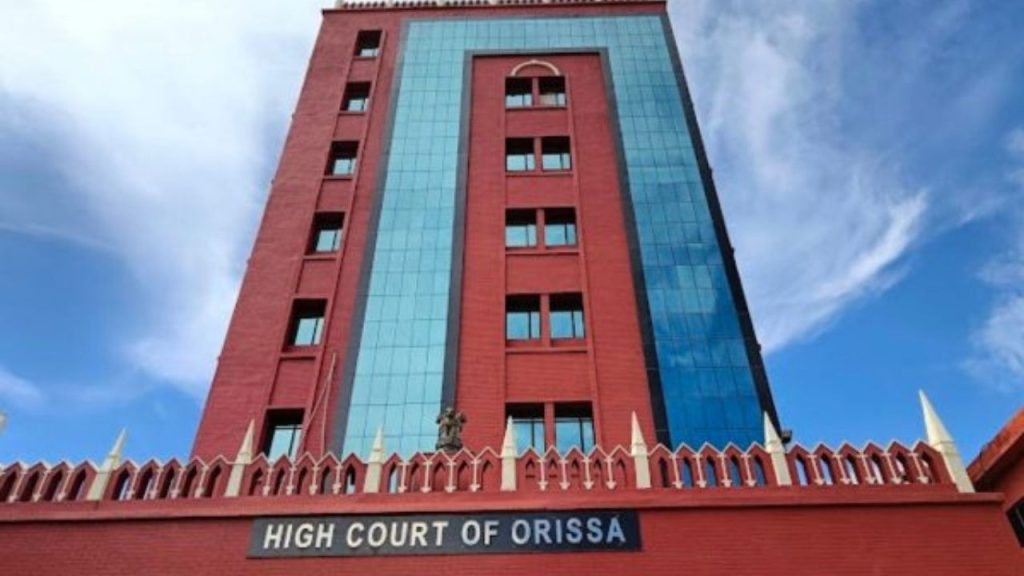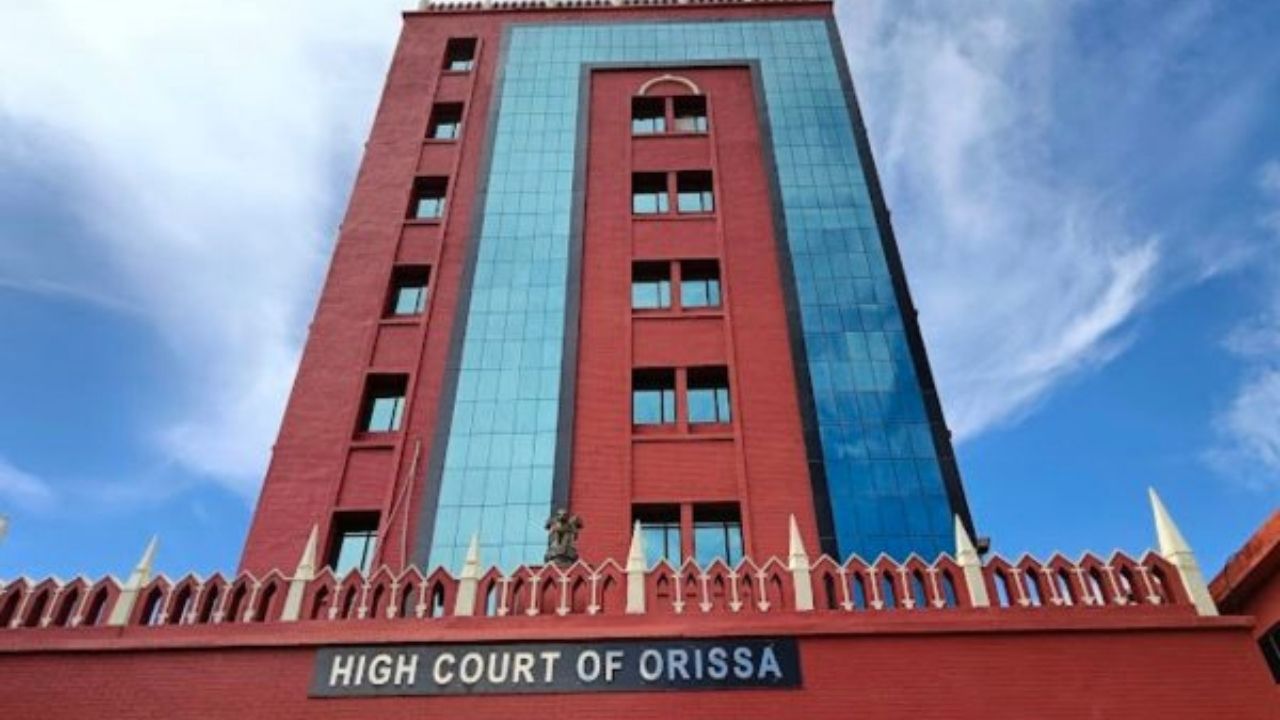The Orissa High Court recently raised a significant concern about the state’s progress in expanding NAT-PCR blood testing facilities. With health issues like HIV, Hepatitis B, and Hepatitis C affecting thousands of people annually, the need for more advanced and accurate testing methods has never been more pressing. Nucleic Acid Testing-Polymerase Chain Reaction (NAT-PCR) offers a faster and more accurate way of detecting infections compared to traditional methods like ELISA. However, despite the state’s commitment to expanding these facilities, delays have been reported, prompting the court to seek a response from the government.

In a ruling, the Orissa High Court directed the Health and Family Welfare Department to submit an affidavit detailing the steps taken to implement NAT-PCR testing across the state’s government-run blood collection centers. This decision comes after a contempt petition was filed by advocate Prabir Kumar Das, who accused the government of not fulfilling its promises made in 2023.
Orissa HC Seeks Government Response
| Key Information | Details |
|---|---|
| NAT-PCR Testing | A more accurate blood screening method for HIV, Hepatitis B, and Hepatitis C compared to the older ELISA method. |
| Court’s Ruling | The Orissa High Court has ordered the Health Department to submit an affidavit within two weeks. |
| Progress Report | In 2023, only 47% of blood centers were using NAT-PCR, with expansion plans to reach 45 more centers by 2025. |
| Contempt Petition | Advocate Prabir Kumar Das filed a petition due to the lack of progress, despite claims from the government. |
| Estimated Cost for Expansion | ₹200 crore has been allocated for expanding NAT-PCR testing to all 56 blood centers across Odisha by March 2025. |
| Next Hearing | The next hearing is scheduled for August 4, 2025. |
| Further Reading | For more information, visit Times of India |
The issue of expanding NAT-PCR blood testing across Odisha is not just a legal matter; it is a vital public health initiative that could save lives. With the Orissa High Court stepping in to ensure that the government fulfills its promises, there is hope that the state will meet its goal of providing accurate and early viral infection testing to all citizens. The expansion of this life-saving technology across blood collection centers will improve health outcomes and reduce transmission risks for diseases like HIV and Hepatitis.
With a commitment to transparency and accountability, the state can achieve these goals. If you’d like to read more about this topic or track future developments, visit Times of India for the latest updates.
What Is NAT-PCR Testing?
Before diving into the specifics of the court’s ruling, let’s take a step back to understand NAT-PCR and its importance. Nucleic Acid Testing-Polymerase Chain Reaction (NAT-PCR) is a modern testing method used to detect viral infections in the blood, such as HIV and Hepatitis B and C. Unlike older methods, which often rely on detecting antibodies or antigens, NAT-PCR looks for the actual genetic material of the virus.
This method is far more sensitive and can detect infections much earlier. For example, someone might not yet show symptoms but still have the virus in their system. NAT-PCR can catch these cases, which means earlier treatment and less risk of transmission. It is widely regarded as a gold standard for blood testing and safety in many countries.
Why Is It So Important?
If you’ve ever donated blood, you probably know that blood banks do everything they can to ensure the safety of their donations. Infections like HIV and Hepatitis are potentially life-threatening, but thanks to advancements in medical technology, the risk of transmission through blood donations has been drastically reduced. By adopting NAT-PCR testing across all blood centers, Odisha could significantly reduce the number of undetected infections in its population.
In 2023, Odisha was already using NAT-PCR technology in 11 of its blood collection centers. These centers were testing about 47% of the blood collected, according to the state’s own data. The state had promised to expand this number by March 2025, but progress has been slower than expected, which is why the court is now stepping in.
The Legal Action and Court’s Ruling
In response to the delays, advocate Prabir Kumar Das filed a contempt petition before the Orissa High Court. His petition was based on information he received through Right to Information (RTI) requests, which showed that the state had not made significant progress in expanding the NAT-PCR testing network. Despite earlier assurances that all 56 blood collection centers would have the technology by 2025, only the original 11 centers were using it.
The court’s decision to request an affidavit from the government is an important step toward ensuring that the state’s health promises are fulfilled. The government now has two weeks to respond with a detailed update on its progress. If no substantial progress is made, further legal action could follow.

The Importance of Expanding NAT-PCR Testing
Expanding NAT-PCR testing is not just a matter of meeting legal or procedural obligations; it is a matter of public health. The longer an infection goes undetected, the more time the virus has to spread. Earlier detection means more opportunities for patients to receive timely medical intervention. This leads to improved patient outcomes, less strain on the healthcare system, and, most importantly, a reduction in the transmission of these potentially deadly infections.
For example, in HIV testing, early diagnosis through NAT-PCR can allow for prompt treatment that suppresses the virus to undetectable levels, significantly reducing the risk of transmission to others. Similarly, for Hepatitis B and C, early detection through NAT-PCR allows for timely antiviral treatments that can prevent liver damage and the spread of the virus.
Cost Considerations and Challenges
One of the primary reasons behind the slow progress is the high cost associated with implementing NAT-PCR technology across the state. The state government has estimated that it will cost ₹200 crore to expand the technology to all 56 centers by March 2025. While this is a significant investment, it is a necessary one, as the benefits far outweigh the costs in the long term.
As it stands, only 11 centers have the necessary equipment, and the government has committed to ensuring that all blood collection centers are equipped with NAT-PCR technology by 2025. This ambitious timeline underscores the state’s commitment to improving public health, but it also highlights the challenges that come with rolling out such advanced technology across a large region.
Odisha Chief Minister Grants ₹20 Lakh to Family of Student Who Died After Self-Immolating
Elephant Dies of Electrocution in Rairakhol, Odisha: CM Orders Probe
Journalist Murdered in Odisha’s Malkangiri: Police Investigation Underway
FAQs
What is NAT-PCR testing used for?
NAT-PCR testing is used to detect viral infections like HIV, Hepatitis B, and Hepatitis C in the blood. It is considered one of the most accurate and sensitive methods for early detection of these viruses.
Why is NAT-PCR better than other testing methods?
NAT-PCR can detect viruses at an earlier stage than other methods, such as the ELISA test. It looks for the virus’s genetic material rather than antibodies or antigens, which makes it more sensitive and accurate.
What has the Orissa High Court asked the government to do?
The court has asked the Health and Family Welfare Department of Odisha to submit an affidavit detailing the progress made in expanding NAT-PCR testing to all blood collection centers in the state. The government has been given two weeks to respond.
How much will it cost to expand NAT-PCR testing in Odisha?
The expansion is estimated to cost ₹200 crore, which will be used to equip all 56 blood collection centers in the state with NAT-PCR technology by March 2025.





